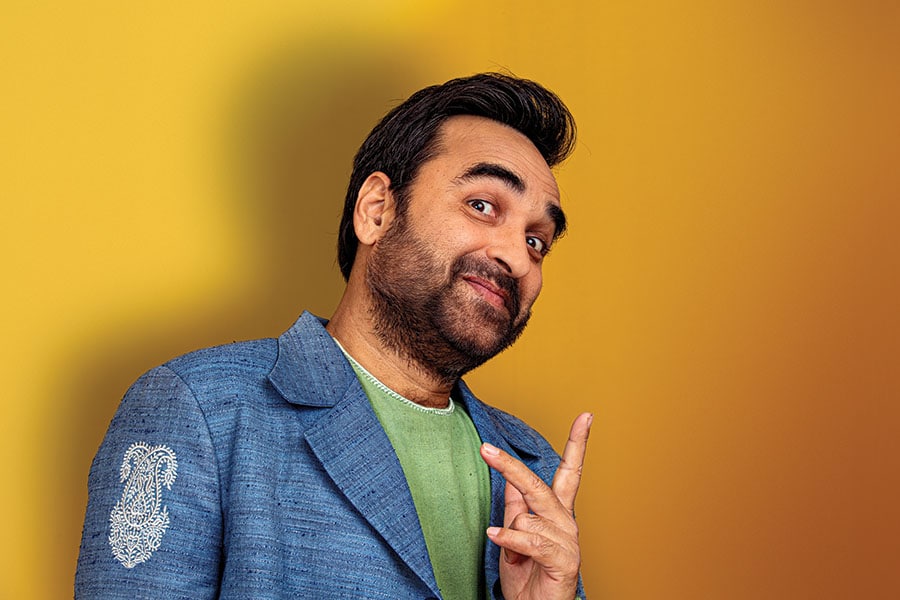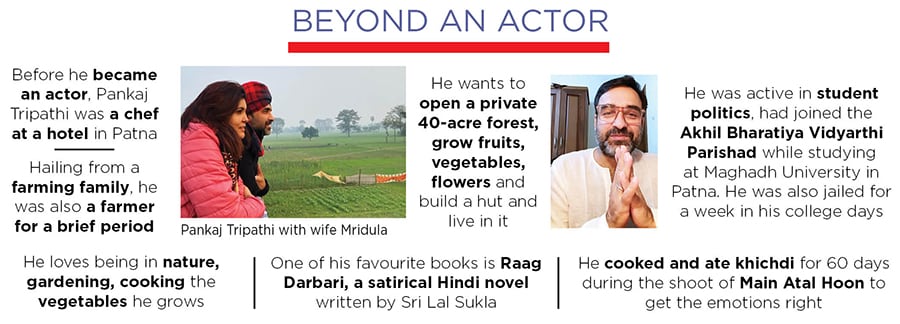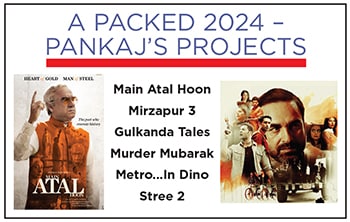
I want to be remembered for the work I do: Pankaj Tripathi
The 47-year-old actor entered the Rs 100-crore club for the first time, and won his second national award this year, making a mark for his distinctive style and sense of realism
 Pankaj Tripathi's entry into the world of OTT in 2018 allowed him to showcase his versatility as an actor, especially as the uncrowned king and don, Kaleen Bhaiya, from the web series, Mirzapur. Image: Madhu Kapparath; Styling: Vineet Chauhan; Hair: Eikash Biswakarma; Make up: Suresh Mohanty
Pankaj Tripathi's entry into the world of OTT in 2018 allowed him to showcase his versatility as an actor, especially as the uncrowned king and don, Kaleen Bhaiya, from the web series, Mirzapur. Image: Madhu Kapparath; Styling: Vineet Chauhan; Hair: Eikash Biswakarma; Make up: Suresh Mohanty
October 16, 2004. On this day, Pankaj Tripathi set foot in Mumbai aspiring to be a film actor.
Exactly 19 years later, on October 17, 2023, he received the National Award for the best supporting actor for the comedy-drama Mimi (2021). And, it was not his first. In 2017, he earned a special mention for his performance in Amit Masurkar’s dark comedy Newton.
His two-decade journey may have been a series of hits and misses, but for the 47-year-old artiste known for his calm demeanour and easygoing style of acting, 2023 has been a significant year.
Aside from the award, he entered the Rs 100-crore club for the first time, with two films—OMG 2, and Fukrey 3. In December, he played a lead role in the crime drama, Kadak Singh, released on an OTT platform.
The next few months also look bright for the star. He plays the lead as former prime minister Atal Bihari Vajpayee in a biopic titled Main Atal Hoon. Other soon-to-be-released web series and movies include Mirzapur 3, Stree 2, Murder Mubarak, and Metro In Dino.







 “Acting has taught me how to live. It has also made me a better person,” says Tripathi. “I understand human psychology better. As an actor, you tend to feel more emotions than a common man, because it’s our job to explore and show them,” he adds.
“Acting has taught me how to live. It has also made me a better person,” says Tripathi. “I understand human psychology better. As an actor, you tend to feel more emotions than a common man, because it’s our job to explore and show them,” he adds. 




